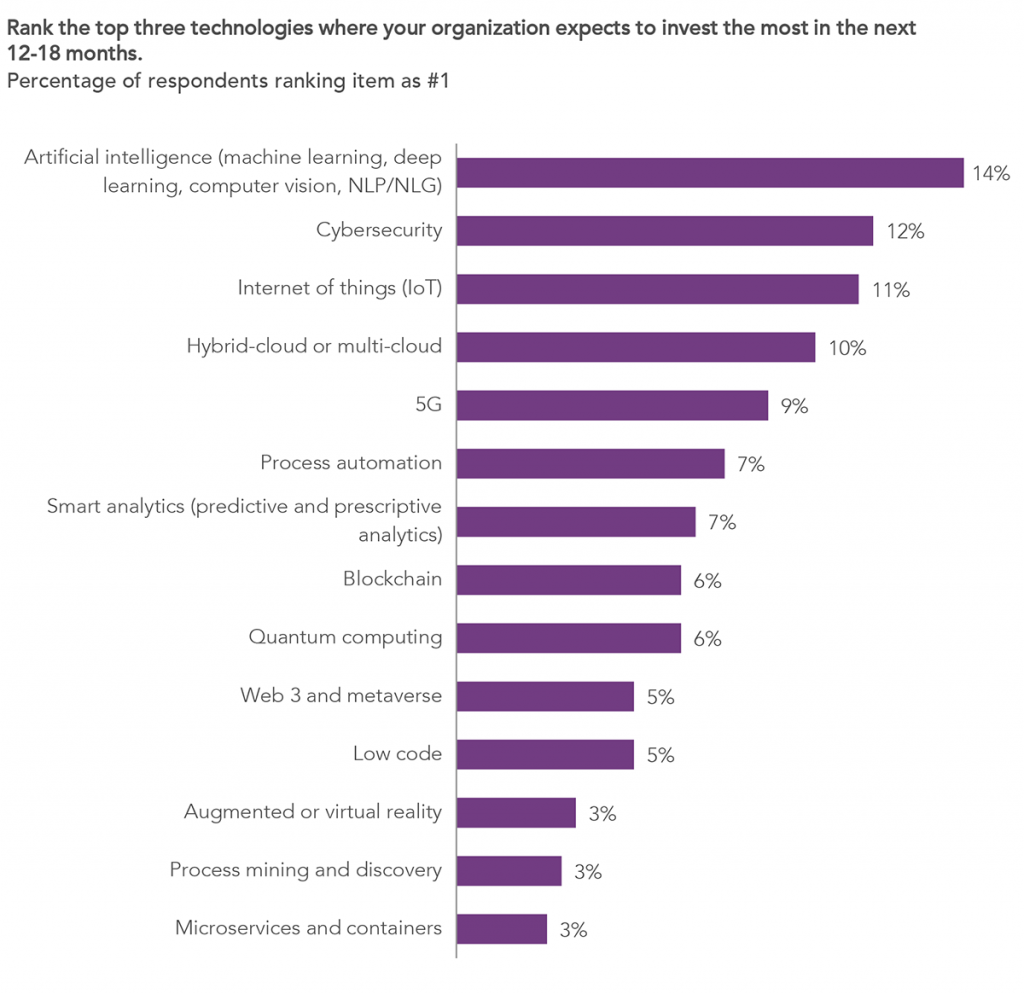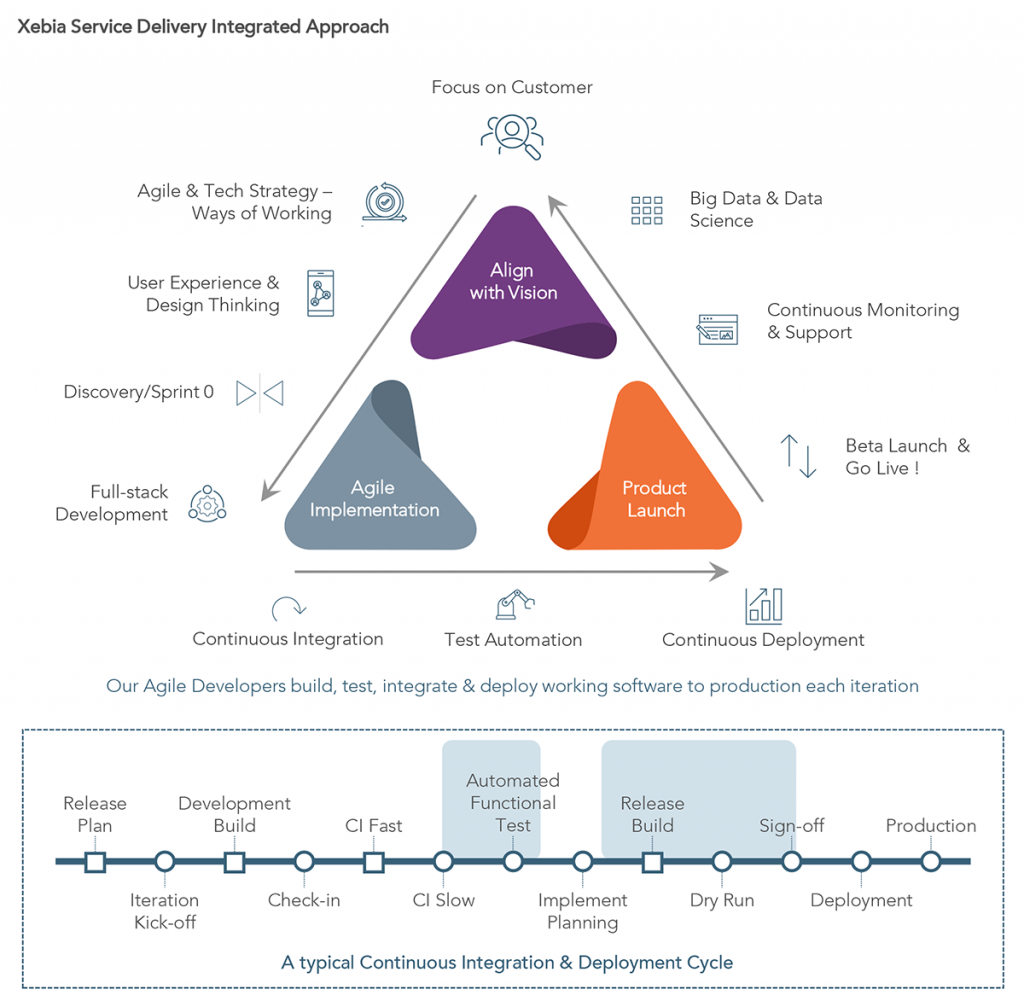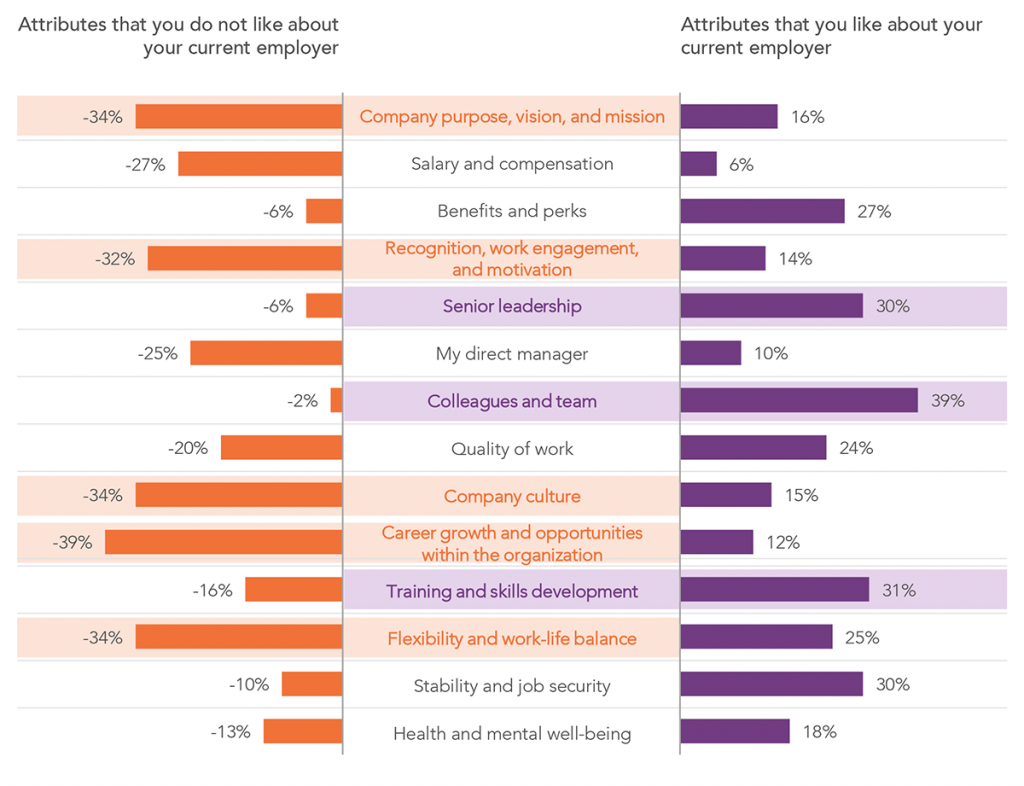From its roots as a Netherlands-based IT architecture consulting firm, Xebia has grown into an established, high-end software development firm, working with clients on their transformational journeys without shedding its mission of authority since 2004. It recently moved its headquarters to Atlanta to pave a faster and greater path to success. Accelerated by both organic and inorganic growth, Xebia has maintained its mission and values from its inception and continued its focus on scaling the organization by looking inward and mastering the art of software craftsmanship.
Xebia’s four values form the pillar of building its mission of authority:
Under the leadership of Anand Sahay, Xebia has expanded globally. Xebia started in the Netherlands in 2001 and expanded to other European countries, the US, the Middle East, Southeast Asia, and India to scale its operations. Anand talks about Xebia’s vision, its digital business journey, and global expansion in a recent HFS videocast.
Very early on, we were clear that we wanted to build a company with a vision of being an authority in technology. We have built a company with a very strong engineering culture, the right software engineering practices, and resilience.
– Anand Sahay, CEO, Xebia
Enterprises are digitally transforming and realigning the way they do business in today’s world to improve the customer experience and product life cycles and monetize services. Creating a blueprint to address critical business problems, developing a roadmap including investments in relevant technology, then using these technologies, resources, and skills to build a minimum viable product are fundamental elements of a digital transformation journey.
To stay ahead of the competition, enterprises are investing in AI, cloud, IoT, and smart analytics and pushing the boundaries of technology with investments in emerging tech such as 5G, quantum computing, Web3 and metaverse, and low code in the next 12 to 18 months (Exhibit 1). Currently, they are developing use cases for emerging tech to understand how their businesses could stay ahead of the competition and increase customer intimacy. As these enterprises begin their journey to digital sophistication with emerging tech, there are high possibilities of dead investments and deviations. Employing relevant digital tools and processes is also a challenge throughout the transformation process.

Sample: HFS Pulse Dashboard, 243 executives across Global 2000 enterprises
Source: HFS Research, 2023
Service providers are experienced with technologies that have become mainstream, such as AI, cloud, IoT, and smart analytics, with several use cases and implementations that have begun showing ROI. However, as enterprises invest in emerging tech, it becomes extremely important to understand the blueprint of the business and create holistic solutions to avoid setbacks at a later stage. Service providers must understand the scale of enterprise needs and bring to the table business continuity, stringent timelines, and minimal productivity disruption while engaging in digital transformation.
We think innovative application and software will require both high code and low code, so a hybrid architecture is evolving.
– Anand Sahay, CEO, Xebia
Evolving with market needs and the shift to data analytics, Xebia has a strong data and AI skillset, with professionals located globally. There is also a strong focus on cloud and cloud optimization, and Xebia’s ecosystem includes industry-leading partnerships. Xebia is also developing low-code/high-code use cases. Xebia’s mission of authority in cutting-edge technologies with a highly skilled workforce brings emerging technologies to customers with an ability to scale the team and bring implementation to life.
As products, services, and people evolve, the transformation journey becomes more nuanced and layered. Digital transformation is woven in layers across the technology architecture. These different layers and new technology patterns impact robust and scalable architecture. However, the pace at which technologies are developing requires a process of continuous improvements and multiple iterations. Enterprises want service providers to bring flexibility and integrated solutions to help them be efficient and effective in the journey.
Software development is the foundation for digital transformation, and the quality of the software directly impacts business outcomes. Thus, the quality of software has become vital to a digital transformation journey. This is evident from the increase in the adoption of Agile and DevOps practices. Xebia brings together offshore and nearshore development centers, onshore and offshore cross-functional teams, and its global office to engineering tech and program governance with program management along with distributed and scaled agile methodologies. The focus is also on ways of working, including different flavors of agile, to provide an integrated service delivery approach. Very early on in its journey, Xebia took an approach to training its younger talent on good software building and teaching them what agile software development means, building the aspect of software craftsmanship internally.

Source: Xebia, 2023
Xebia is well-placed to deliver all aspects of digital consulting through its consulting services and complementary domains that offer full-service, end-to-end solutions with an integrated approach to service delivery and customer focus at its peak (Exhibit 2). It has spent significant time training and retraining its workforce on the art of good software building and bringing customers the changes at the speed of thought, truly treating software as a craft, and constantly evolving and innovating this craftsmanship.
Based on a survey by HFS Research across Global 2000 enterprises, almost 25% of the challenges enterprises face relate to retaining and hiring quality staff, further complicated by 8% of staff being reluctant to return to the office. This resource challenge is a pitfall for enterprises when it comes to blind investments in resources without an initial blueprint, and it causes long-term business implications. The ever-increasing skills gap requires in-house upskilling.
On the other hand, service providers must tackle retaining and upskilling their workforce. Customer demand for digitally enabling processes and journeys increased during the pandemic, and so did attrition for service providers. Service providers are left to tackle organizational attributes such as career growth, opportunities, company culture, vision, mission, purpose, recognition, work engagement, and motivations, which are some of the top drivers for attrition in Exhibit 3. In addition to this challenge, there is constant growth in the adoption of emerging tech, which only pushes the button for upskilling and adding new capabilities.

Sample: 1,800 employees across leading IT and business service providers
Source: HFS Research, 2023
Finding the right talent has been a challenge in the industry. As a global firm, Xebia is mindful of cultural differences, and this has helped it recruit, retain support for, and communicate with employees. Refining its hiring process through proactive communication gave Xebia an edge to tap into the talent with the required skills. Being conscious of how external factors are impacting its employees and finding a middle ground with an open mindset without compromising on its vision and mission statement is core to Xebia’s talent management.
Xebia believes that professional development is a continuous process, and it delivers training globally. It also recognizes how critical in-house talent development is for enterprises with an increasing skill gap. Its training offerings chart training paths at all professional levels across key technologies and methodologies such as data and AI, cloud, Agile and Scrum, product management, and DevOps.
The services industry is facing pressure due to attrition and a potential recession. Scaling an organization that meets the ever-changing needs of clients in technology, engineering, and people must focus on constantly reinventing themselves and ingrain a culture of wanting to make a difference.
As enterprises embark on the digital transformation journey, Xebia is well-placed to address transformation as it continues to build expertise in data and AI, cloud solutions, software engineering, low code, and business transformation consultancy.
Xebia’s values focus on achieving the full potential of its people individually and collectively, leading high-quality-driven ways of working. This focus is enabled by its passion for technology, people, and sharing knowledge. However, it all starts with hiring the right talent and creating digital leaders with a thirst for technology and customer intimacy without compromising on quality.
We have always believed in having Xebians whom we find and select after a lot of hard work. Our culture has been built by our own people. If you have a good culture, people want to stay with you.
– Anand Sahay, CEO, Xebia
Register now for immediate access of HFS' research, data and forward looking trends.
Get StartedIf you don't have an account, Register here |
Register now for immediate access of HFS' research, data and forward looking trends.
Get Started